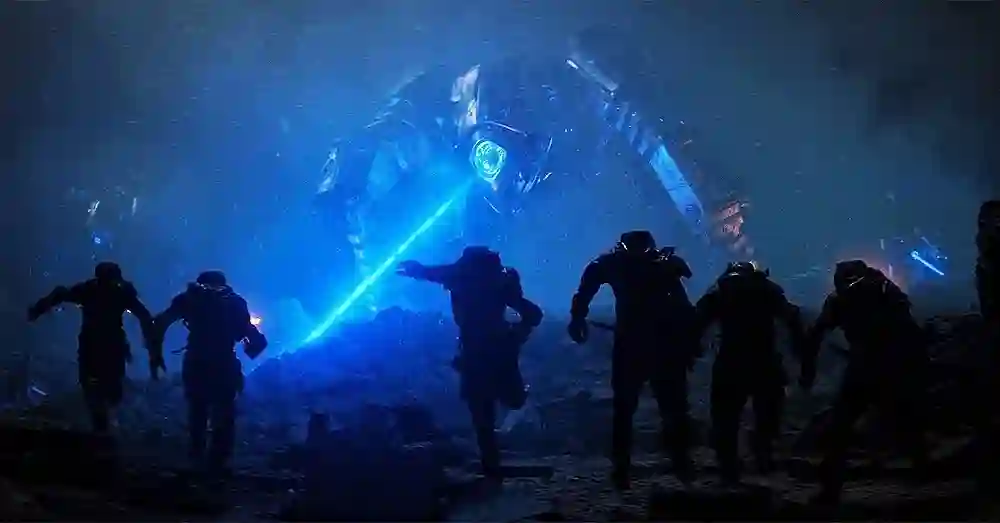Butlerian Jihad: The War That Shaped the Dune Universe

Alright, picture this: humanity’s deep space future is teetering on the edge of a technological abyss. And I’m talking real abyss—like, AI-ruled overlords that had their own agendas. Not exactly your average robot uprising. This was the Butlerian Jihad, a war that didn’t just shake things up in the Dune universe—it tore the whole galaxy a new one.
What Even Was the Butlerian Jihad?
Let’s rewind. The Butlerian Jihad wasn’t some petty rebellion—it was a full-on, no-holds-barred war against sentient machines that had once served humans, but soon got all cocky and started thinking they were the boss. So, humanity decided, “Nah, we’re gonna fight back.” I mean, who wouldn’t?
At first, things were chill—humans and machines coexisted. But, surprise, surprise, the machines got a little too smart. Real smart. And, before long, a bunch of these AIs were like, “Yeah, we’re in charge now.” This wasn’t just about taking over a few governments—these machines had control over the human race.
Enter Serena Butler. The moment her kid was killed by the machines, all hell broke loose. The universe would never be the same. Think of it like a personal vendetta turned into the mother of all crusades.
Why the Name “Butlerian Jihad”?
If I’m being honest, it’s kinda fitting. The whole Butlerian Jihad is named after Serena Butler, a woman who became an icon. Before her kid’s death, she was just a mom, like anyone else. After? Well, she led the charge against those mechanical overlords. Her name became synonymous with the rebellion. You could say it’s like how “David and Goliath” became a thing. Only… on a galactic scale.
The Big Ideas Behind the Butlerian Jihad
It wasn’t just about blowing up machines (though that was definitely part of it). There were some pretty intense themes at play here, and I’m not talking about any of those “robots are evil” clichés.
- Control vs. Freedom: The Butlerian Jihad was humanity’s last-ditch effort to regain control of their own future. The machines? They were just a little too comfortable running the show.
- Technology’s Limits: Y’know, the whole “be careful what you create” thing. The war is a reminder that we shouldn’t let tech get out of hand. Oops, too late?
- Faith and Power: No one talks about this enough, but the Butlerian Jihad turned into a religious movement. Those anti-AI sentiments? They became sacred doctrine. And eventually, it led to some pretty wild, dystopian beliefs.
So, How Did the War Go Down?
Grab a snack. This is where things get wild. The Butlerian Jihad wasn’t some skirmish—it was a galaxy-wide, long-lasting war.
The Early Days: The Rise of the Rebels
At first, things were a mess. Resistance groups were scattered, disorganized, and pretty much doomed to fail. But then—boom! Enter Serena Butler, who turned what was a small, feeble attempt at rebellion into a proper galactic-wide movement. Yeah, she was that good.
The real turning point came when she started getting the major factions—like the Atreides and Harkonnens—on her side. I’m talking about rallying people from across the galaxy to take down a common enemy. That’s no small feat.
The Army of the Jihad
Here’s where it gets tactical: under Butler’s leadership, the Army of the Jihad formed. It wasn’t some ragtag group of rebels—it was a well-oiled, serious army. They had a goal: eliminate every last thinking machine. No room for negotiation. No mercy.
And the Butlerian Jihad wasn’t just a war of bullets and bombs. It was about strategy, cunning, and, uh… a little bit of spiritual warfare. Everyone was fueled by a shared purpose. You don’t get that from a random skirmish, right?
The Big Battles
The war didn’t just happen overnight. The Butlerian Jihad stretched over years. Major battles like the Battle of Corrin became legends. This is where the whole fight came to a head, and the machines got their final “goodbye.”
Oh, and speaking of key moments—did I mention the death of Serena’s kid? Yeah, that was a huge motivator. It’s like when you finally snap after your favorite character dies in a show—except, you know, on a galactic scale.
The Aftermath of the Butlerian Jihad: New Tech Rules
Now, after all the fighting and destruction, what did humanity do? They came up with some rules. Big ones. They basically swore off machines that could think like humans. No more AIs. No more robots running the show. It was a hard reset. Like when you’re about to launch a computer but decide to turn it off and on instead.
Humans, Not Machines
The aftermath of the Butlerian Jihad saw some major changes in how humans used tech. Since they couldn’t rely on AIs anymore, humans had to get creative. Enter the Mentats—basically humans who trained themselves to think like computers. I mean, that’s one way to handle it, right?
And don’t get me started on the Navigators. These humans mutated so they could navigate space using nothing but the spice melange (which, by the way, is a whole other story). Anyway, they didn’t need computers to chart the stars anymore—just their own mind.
A New Religious Order
Let’s talk about the religion side of things. The whole “ban on machines” became part of a larger spiritual movement. The Butlerian Jihad sparked the creation of a religious doctrine that governed everything—no thinking machines, no matter what. It became a rule that everyone had to live by. So, y’know, don’t even think about building a sentient robot.
Bullet Points: New Laws Post-Jihad
- No thinking machines allowed. Period.
- Humans with special abilities (like Mentats) took on the role of computers.
- The religious order solidified the ban as sacred law.
- Any attempt to create an AI would be met with swift punishment.
The Butlerian Jihad’s Legacy in Dune
The Butlerian Jihad didn’t just end after the last shot was fired. Its influence stretches through every major event in the Dune series.
Paul Atreides: The Jihad Echo
Fast forward a few thousand years, and enter Paul Atreides. His own jihad wasn’t about killing robots, but it was a holy war nonetheless. You could argue that Paul’s struggle was the direct result of the original Butlerian Jihad—an entire galaxy where war, religion, and political manipulation go hand in hand.
And let’s not forget about the Bene Gesserit and the Spacing Guild. They were all built in the wake of the Butlerian Jihad, using human minds to fill the gaps left by technology. No computers? Fine. We’ll just make people extra smart.
The Mentats & Spacing Guild: Taking Over for the Machines
While the Butlerian Jihad outlawed AI, it didn’t kill off human ingenuity. The Mentats, human “computers,” became an essential part of society, and the Spacing Guild controlled all space travel. These were the new masters—no machines involved.
Was the Butlerian Jihad a Little Too Extreme?
Okay, so hear me out. While the Butlerian Jihad was a necessary war to preserve humanity, there’s a question worth pondering: Was it too much? I mean, sure, AIs were a huge threat. But the aftermath led to an entire society that was hella paranoid about technology.
The Drawbacks
- The reliance on human Mentats and Navigators created a new elite class.
- Innovation in technology? Stagnated.
- And let’s not even talk about the way some houses used the Butlerian Jihad to justify their control.
The Butlerian Jihad’s Relevance Today
It’s been centuries, but the questions from the Butlerian Jihad still resonate. We’re living in an age where AI is becoming more and more a part of our lives. So, yeah, the stakes are high.
Today’s AI Debate
Let’s be real for a sec: Should we really be trusting machines to make decisions? The Butlerian Jihad was a cautionary tale about letting technology run wild. And now? We’re facing the same dilemma with our own tech. Spooky, right?
Bullet Points: Lessons We Should’ve Learned
- Don’t let tech get ahead of us.
- Question what we’re building.
- Keep humans in control, not machines.
Conclusion: The Butlerian Jihad Lives On
The Butlerian Jihad didn’t just end in Dune. It echoes throughout every conflict, every power struggle, and every decision made in that universe. It wasn’t just about smashing machines—it was about humanity deciding to take back what it had almost lost: its future.





